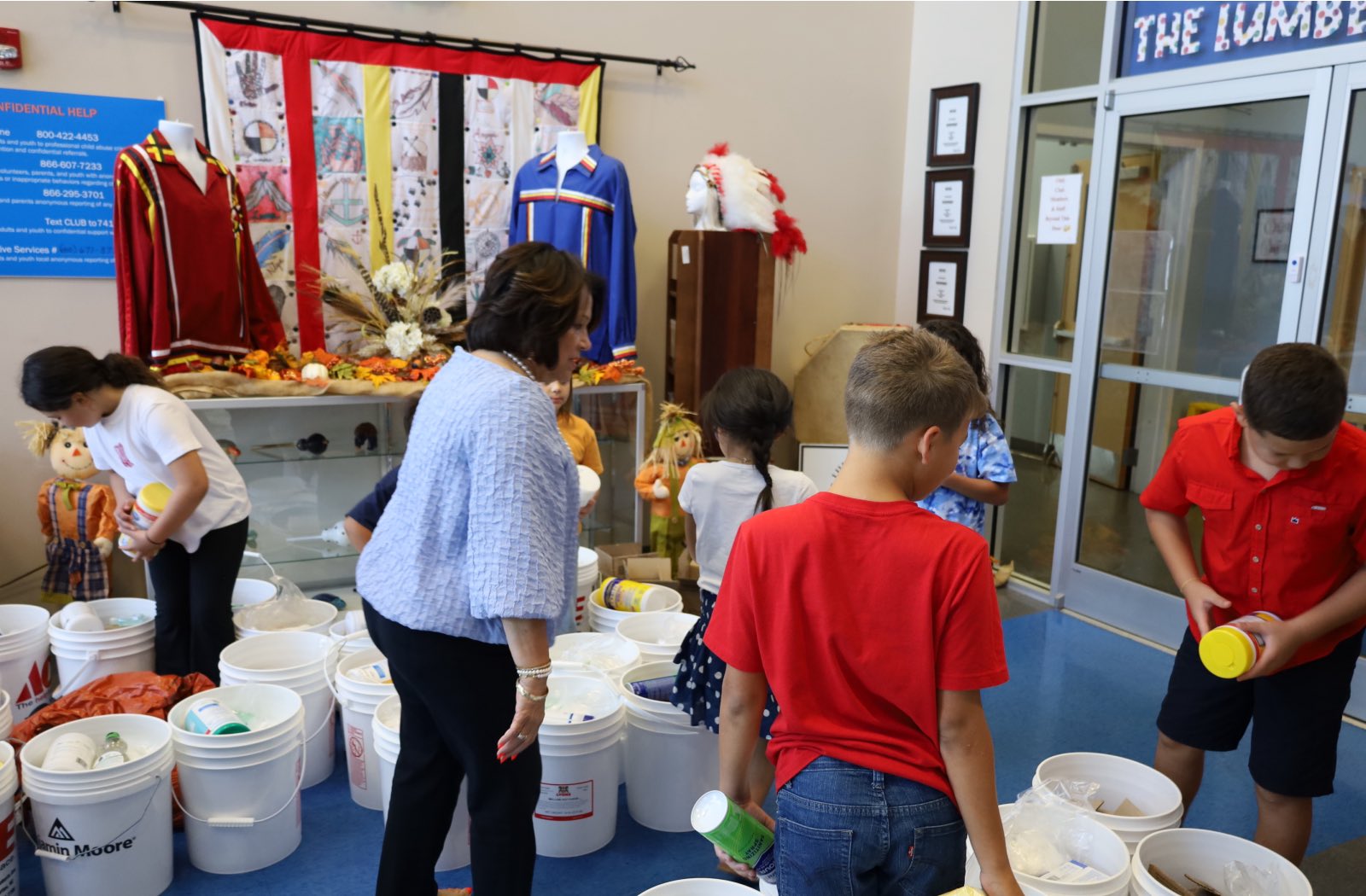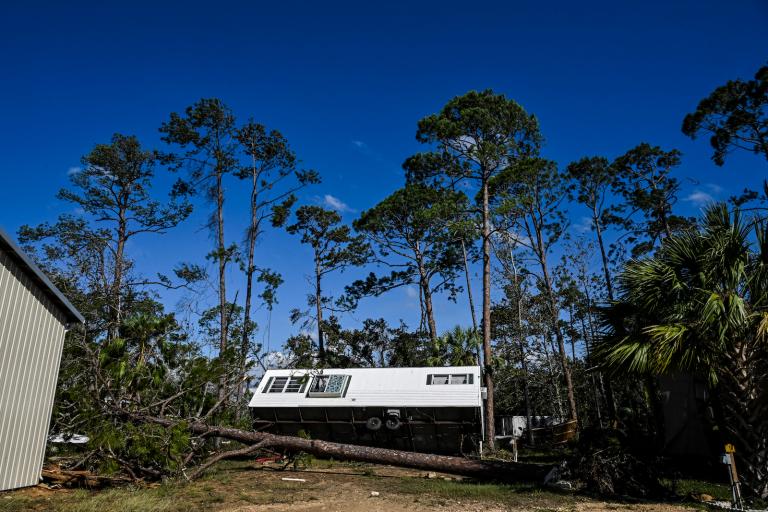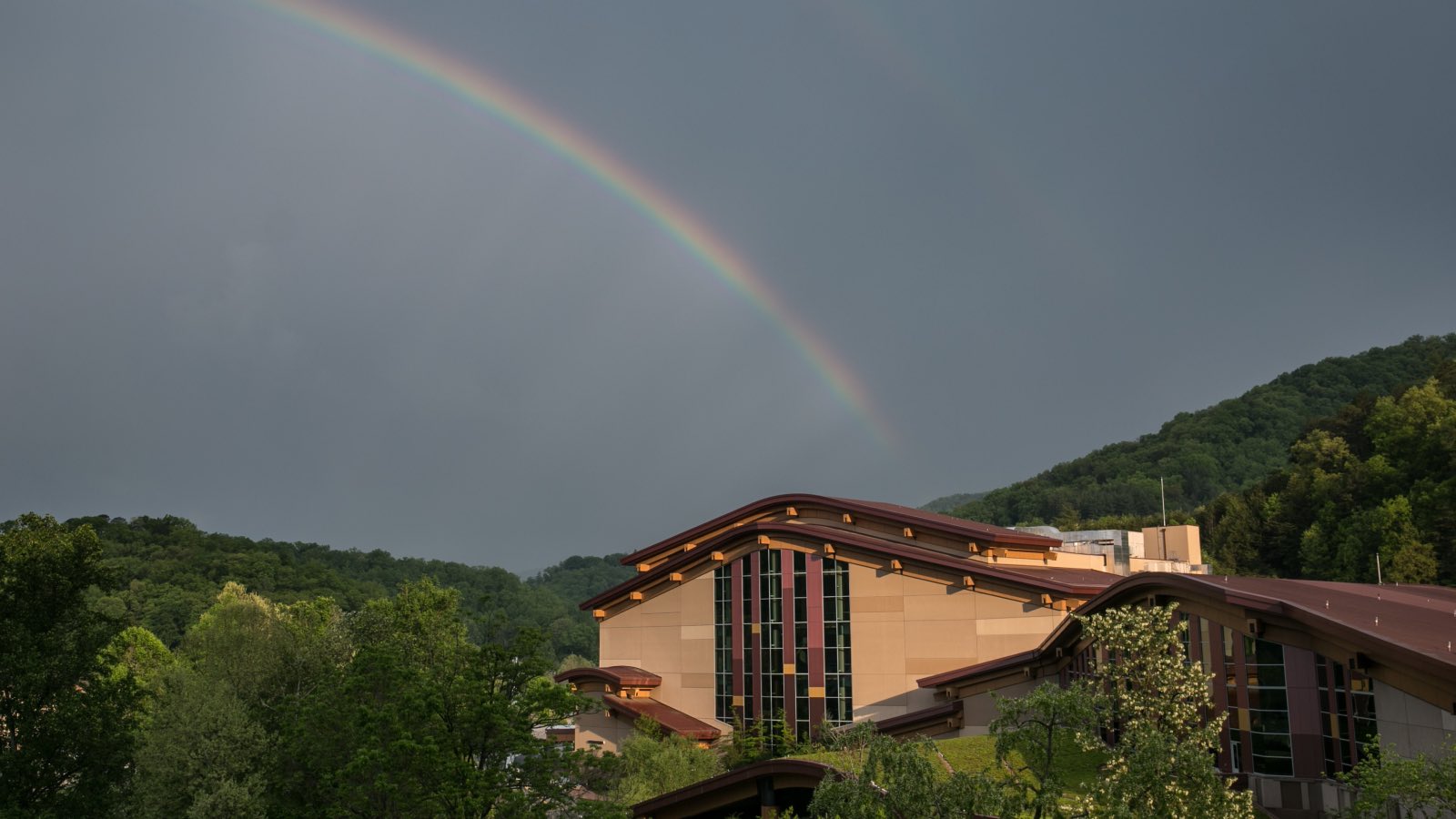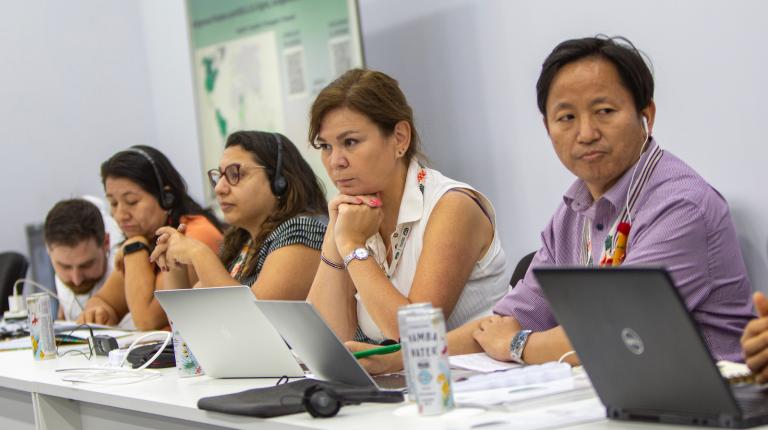Members of the Eastern Band of Cherokee Indians were looking forward to their annual Cherokee Indian Fair this year — 2024’s event was to be the 112th celebration. There were going to be Indigenous stickball tournaments, bubble gum-blowing contests, and a longest-hair competition.
But the tribe, located in the western part of North Carolina, was slammed by Hurricane Helene less than a week before the fair, with floods, destruction, and a death toll of more than 200 across the state. Some members thought maybe canceling would be for the best.
But Principal Chief Michell Hicks said the fair should go on as scheduled.
To Hicks, the gathering was more important now than ever, as a way to collect donations for those in need and to “honor our traditions while supporting those who need it most.”
Big country musical acts who were playing the fair, like the headliner, Midland, urged attendees to bring nonperishable food items and bottled water for those affected by the hurricane. And after the five-day celebration wrapped up on October 5, tribes from all over the region are continuing to come together to support the Eastern Band of Cherokee Indians, which was one of the most affected by Hurricane Helene.
Funds to repair damages are often harder for tribes to access, so as climate change-fueled natural disasters get worse, tribal nations often lean on community support from one another. For many tribes, a natural disaster exacerbates already-present inequalities.
Despite being located in some of the most vulnerable areas, tribal communities have a history of being left behind when extreme weather strikes. One 2019 study found that tribal citizens on average receive only $3 per person in federal disaster aid each year, compared to $26 for nontribal U.S. citizens. Also, federally recognized tribes were only granted the ability to apply directly to the Federal Emergency Management Agency for aid as recently as 2013. Before then, tribes could only apply for aid through the states their land was located in.
Kelbie Kennedy is FEMA’s first national tribal affairs advocate, and a citizen of the Choctaw Nation. She said that FEMA has been working hard to address the unique barriers that tribal nations encounter. “Before Hurricanes Helene and Milton made landfall, they worked with every tribal nation in the pathway to see if they had any unmet needs and needed additional support pre-landfall,” she said.
In 2022, the same year Kennedy was appointed, FEMA released its National Tribal Strategy guide where the department laid out its plan to address long-standing inequalities — for instance, by increasing climate change education and improving coordination and delivery of federal assistance. But two years later, some are still waiting to see if this guide has actually improved relief efforts. Cari Cullen is with the Center for Disaster Philanthropy and runs its Native American and Tribal Recovery Program. She works with tribes to manage grants and address gaps in funding for tribal communities affected by climate-driven natural disasters, and said that she sees much work to be done to address natural disaster recovery, because many tribes are already operating at a deficit.
“There’s already a lot of preexisting conditions and disparities in many of our tribal communities,” Cullen said, citing long distances from medical clinics, lack of emergency management resources, and substandard housing.
She said that tribes have to construct a patchwork of support, and rope in other organizations, as well as other tribes, to address natural disasters faster than FEMA can.
Members of the Cherokee Nation in Oklahoma knew there might be such gaps in support, and many traveled 13 hours to North Carolina to attend the 112th Indian Fair put on by the Eastern Band of Cherokee Indians. Volunteers from their Cherokee Language Immersion School and their Emergency Management Department dropped off 38,000 bottles of water and 100 pallets of clothing and bedding.
Chuck Hoskin Jr., the principal chief of the Cherokee Nation in Oklahoma, said that as climate change gets worse and natural disasters increase, the two tribes’ shared history has helped them develop an understanding that they need each other during hard times.
“These storms are getting more intense, and hurricanes affecting further inland into the continent makes us all feel a degree of vulnerability,” he said.
The damages from Helene have been appraised to be in the billions. When Hurricane Milton hit just weeks later, funding for FEMA was already in jeopardy. Hoskin said that gives him pause, and makes the future more uncertain. As climate change becomes more extreme, Hoskin worries about how much worse the hurricanes could get. “We need to make efforts to curb it,” he said. “But we are a planet behind and suffering the consequences now.”


Other tribes in the state know what it’s like to be hit with natural disasters that impact a community for decades. The Lumbee Tribe of North Carolina, which is a state-recognized tribe, is helping to coordinate disaster relief efforts for its western neighbors, partnering with a religious organization called the Burnt Swamp Baptist Association. The tribe has collected donation items and sent teams to assess the damage in the western part of the state. Members of the Lumbee Tribe Boys & Girls Club spent a week putting together hygiene kits, and children made coloring cards for affected families.
John L. Lowery, tribal chairman of the Lumbee Tribe of North Carolina, said their community went through two natural disasters — Hurricane Matthew in 2016 and Hurricane Florence in 2018 — and they know the road to recovery is long.
“We want to do our part to support our neighbors in the mountains of North Carolina during this difficult time following the devastation of Hurricane Helene,” he said. “We know how hard it is to live through great loss, and we want to help these families.”




